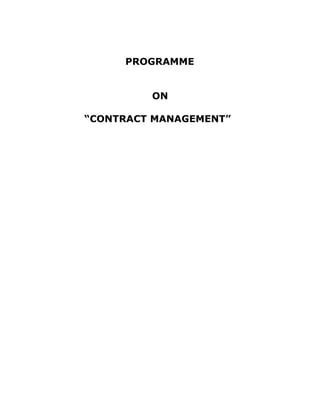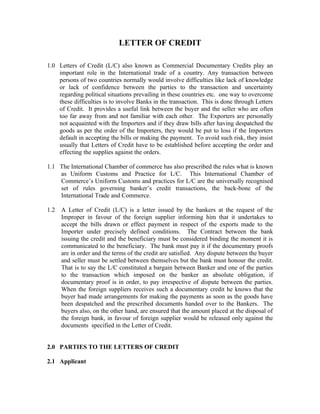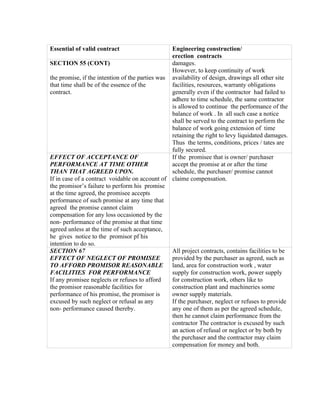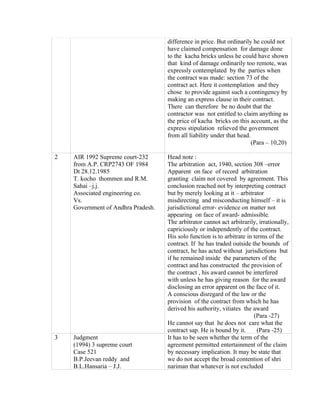This document provides an overview of contract management and related legal topics in India. It discusses:
1. The historical evolution of contract law in India from customs and religious laws to the modern Indian Contract Act of 1872.
2. Key sections and aspects of the Indian Contract Act of 1872 and Sale of Goods Act of 1930 that are relevant for contract management.
3. Additional topics covered include taxes/duties, negotiations, bank guarantees, time schedules, insurance, letters of credit, price variations, arbitration, cost/time overruns, and landmark legal judgments.


























































































































































































